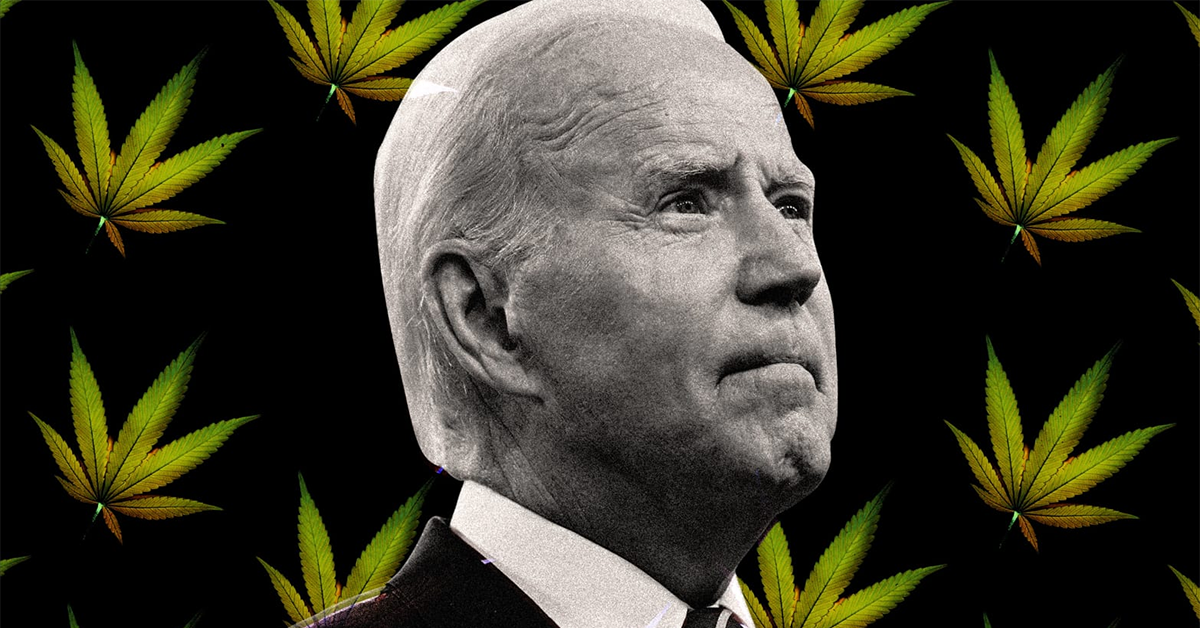Dual Marijuana Facility Break-ins in Van Buren County Prompt Sheriff's Investigation

Early on Monday, January 8, two marijuana facilities in Van Buren County were the targets of break-ins, prompting an investigation by local law enforcement. The incidents occurred in quick succession, with the first report coming at approximately 3:19 a.m. at Higher Breed, located at 77 E. Main Street in Columbia Township. The response from Van Buren County sheriff's deputies was swift, arriving at the scene within ten minutes. They discovered that, thanks to effective interior security measures, the burglars were unable to access rooms containing marijuana products, and consequently, nothing was stolen from Higher Breed.
Almost concurrently, at around 3:39 a.m., a break-in occurred at Canna 43, situated on County Road 653 in Almena Township. Here, the scenario was different. Three individuals successfully entered the building and managed to escape with an undisclosed quantity of marijuana products before the arrival of the police.
The sheriff's deputies, based on the preliminary evidence, suspect that the same trio was involved in both break-ins. The suspects were described as wearing hoodies, hats, gloves, and masks, concealing their identities effectively. Their vehicle was identified as a black, late-model Jeep Compass with a Michigan license plate that could not be discerned.

The Michigan State Police are assisting the Van Buren County Sheriff's Office in this ongoing investigation. The authorities have urged anyone with relevant information to come forward and assist in the apprehension of the suspects. Members of the public can contact the investigators at 269-657-3101, Crime Stoppers at 800-342-7867, or Silent Observer at 269-343-2100. Additionally, anonymous crime tips can be sent to the Van Buren County Sheriff's Office via text message. To do this, text "CRIMES" (274637) with the keyword VBCTIP from a mobile phone.
Sixth Circuit Denies Local Roots' Bid to Challenge Perry Dispensary Settlement

In a recent ruling by the Sixth Circuit, Local Roots, a cannabis company, was denied the opportunity to challenge a settlement between the City of Perry, Michigan, and its competitor, Liberty Wellness. This decision upholds the allowance of more than one dispensary in Perry, a point of contention for Local Roots.
The case unfolded as Local Roots, which had secured a conditional marijuana retailer license in late 2022 under the assumption of being Perry's sole dispensary, attempted to intervene in a lawsuit filed by Liberty Wellness against the city. Liberty Wellness's owner, Jonathan Moses, had sued the city in October 2022, arguing that the city's decision to issue only one license was against the voters' preference for eight licenses. Despite Local Roots filing a motion to intervene, the trial judge concluded the case with prejudice before addressing their motion.
During oral arguments in October, the skepticism of the circuit judges towards Local Roots' position was evident. U.S. Circuit Judge John B. Nalbandian, who later authored the panel's opinion, remarked on the unusual nature of Local Roots' attempt to keep the lawsuit active despite both primary parties seeking its conclusion.
The Sixth Circuit panel supported the lower court's decision to endorse the settlement between Liberty Wellness and the City of Perry, effectively dismissing the action with prejudice. This meant Local Roots could not pursue claims within this lawsuit to maintain its status as the only cannabis retailer in Perry.
The panel further clarified that Local Roots' motion to intervene was moot due to the immediate agreement between Liberty Wellness and the city to dismiss the case, leaving no room for intervention. Additionally, the panel noted that all parties in a litigation must typically agree to a settlement before dismissal, but this doesn't apply until a motion to intervene is granted, which in this case, it wasn't.
Biden's Marijuana Pardons: A Turning Point for Michigan Convicts

President Joe Biden's recent wave of pardons, which included thousands of individuals with federal convictions for personal marijuana use, marks a significant step in changing the landscape for many Michigan residents with similar convictions. Announced last Friday, these pardons are seen as a groundbreaking move in the ongoing shift in how marijuana-related offenses are viewed at the federal level.
Barton Morris, a prominent attorney and member of the Cannabis Council in Troy, Michigan, lauded the president's decision. He emphasized the uniqueness of Biden's consecutive annual pardons in this area, a first in U.S. presidential history. Morris pointed out the profound impact of such convictions on individuals, stating, "Nobody should be in prison or serving time or even suffering any penalties whatsoever for marijuana-related convictions."
The implications for Michiganders with marijuana convictions are particularly significant. Morris noted the profound negative impact of felony convictions on individuals' lives, including hindering employment opportunities and obtaining licenses in various industries. Despite the legalization of personal marijuana use in Michigan, Morris highlighted that numerous state residents are still serving sentences for actions that are no longer considered criminal.
Morris expressed hope that the federal pardons will inspire Michigan Governor Gretchen Whitmer and other state officials to follow suit. He sees this as an opportunity for state leaders to demonstrate courage and justice in their policy decisions, reflecting the changing attitudes towards marijuana use.
Michigan is among the 24 states that have legalized recreational marijuana use. The recent presidential pardons, according to Morris, could not only influence state-level decisions but also potentially pave the way for more states to join the list of those where recreational marijuana use is legal.
Springfield Man Pleads No Contest in Marijuana-Related DUI Incident

In a recent development in Branch County, Michigan, Raymond Root III, a 46-year-old man from Springfield, has entered a no contest plea to charges of operating a vehicle under the influence of marijuana, resulting in serious injury. This incident, stemming from a collision on April 7th on Marshall Street near Taylor in Coldwater, has brought to light the complexities surrounding marijuana use and driving safety.
Root was apprehended on August 31st by Coldwater police following investigations that linked the presence of THC, the psychoactive compound in marijuana, in his bloodstream at the time of the accident. This discovery was made following tests conducted by the Michigan State Police labs.
The case, presided over by Circuit Judge Bill O'Grady in the Branch County Circuit Court, saw Root admitting to his continued use of marijuana, even after the arrest. He disclosed to the court that his last usage was a mere couple of days before the hearing. Root, who had previously been qualified for medical marijuana, expressed his view of not considering legalized marijuana as a drug.
In response, Judge O'Grady commented on Root's continued marijuana use despite the gravity of the situation, pointing out the implications it has on his character. The judge's remarks underscored the legal and ethical considerations surrounding marijuana consumption, especially in relation to operating vehicles.
Prosecutor Zack Stempien, acknowledging Root's plea, agreed to a cap on jail time, proposing a maximum of six months. This agreement will be finalized when Root is sentenced on February 19th. Concurrent charges against Root were also dismissed as part of the plea arrangement.
The consequences Root faces extend beyond incarceration. He is expected to undergo probation, participate in rehabilitative programs, and bear the financial responsibilities associated with the prosecution, including fines, costs, and government reimbursement for emergency responses linked to the accident.
The seriousness of the incident is further highlighted by the injuries sustained by the other party involved in the crash, a 60-year-old woman. She suffered a fractured vertebra, necessitating extensive surgeries. At the scene of the accident, police noted Root's impaired state, though no alcohol was detected. His uncooperative demeanor led to the issuance of a search warrant, which resulted in a blood draw at ProMedica Coldwater Regional Hospital, confirming the presence of THC.
This case brings to the forefront the ongoing discussions about the legal and societal implications of marijuana use, particularly concerning driving and public safety. It serves as a reminder of the responsibilities and consequences associated with marijuana consumption, especially when it intersects with the operation of motor vehicles.
Navigating Housing Policies in the Era of Legalized Marijuana

Medically prescribed marijuana use is permitted in 37 states and the District of Columbia, specifically for medical purposes. In addition, 19 states (Alaska, Arizona, California, Colorado, Connecticut, District of Columbia, Illinois, Maine, Massachusetts, Michigan, Montana, Nevada, New Jersey, New Mexico, Ohio, Oregon, Vermont, Virginia, and Washington) have also legalized recreational marijuana.
Support us as a patron to access this exclusive article.
While we're reluctant to put content behind a paywall, we value our patrons by offering exclusive content just for them. Rest assured, our core mission of providing unbiased news stories remains accessible to all. Our aim is to deliver informative content with minimal ads, and your support means the world to us.
View our PatreonRick Johnson Starts 55-Month Sentence in Federal Prison for Bribery Scandal

Former Michigan House Speaker Rick Johnson, aged 70, has begun serving a 55-month sentence at a federal prison in Minnesota, following his conviction in a bribery scandal that tainted Michigan's marijuana industry. Johnson, once a prominent Republican lawmaker and later a key figure in regulating the state's marijuana sector, was confirmed as an inmate at the FPC Duluth, a minimum-security facility located near Lake Superior, as per the latest inmate database.
Before his fall from grace, Johnson was a powerful figure in Lansing. His journey from a lawmaker to a lobbyist and eventually the chief regulator of Michigan's burgeoning marijuana industry came to an ignominious end after he was found to have received over $110,000 in bribes. His tenure as chairman of the medical marijuana licensing board from May 2017 to April 2019 was marred by these illegal transactions, involving marijuana lobbyists and a businessman. Notably, these bribes included encounters with a sex worker, who referred to him as "Batman."
Johnson's incarceration follows an unsuccessful bid to reduce his prison time and a request to serve part of his sentence under house arrest, citing health concerns from recent heart bypass surgery. He had been granted a postponement to begin his sentence in late October, but U.S. District Judge Jane Beckering refused a further delay. Johnson's attorney, Nicholas Dondzila, had argued for an extension until February 1st, 2023, citing ongoing medical needs and potential treatments that would pose a financial burden on the Federal Bureau of Prisons.
This case marks the most significant public corruption scandal in Michigan's capital in three decades. Johnson was accused of manipulating the state marijuana industry, an action Judge Beckering described as an "unfettered abuse of power." In April, Johnson admitted to accepting bribes to influence his decisions on the licensing board.
Three other individuals, including two lobbyists and a businessman, also pleaded guilty in the bribery scheme but have yet to begin their prison sentences. Lobbyist Brian Pierce is serving a two-year sentence in Pennsylvania, while lobbyist Vince Brown is serving 20 months in a separate federal facility in the same state. Oakland County businessman John Dawood Dalaly is serving a 28-month sentence in West Virginia.


 Helpful Links
Helpful Links